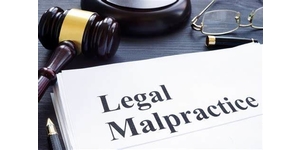
The Louisiana Legislature recently enacted La. Rev. Stat. 9:5605.2, which provides that “[i]n any action for damages by a client against an attorney, the client’s recovery against the attorney shall be limited to the amount of damages which the attorney shows by a preponderance of the evidence would have been the maximum amount of damages that the client could have collected in the client’s underlying action in which he was represented by the attorney.” La. Rev. Stat. 9:5605.2. The statute became effective July 1, 2022.
The legislature passed La. Rev. Stat. 9:5605.2 in response to the Louisiana Supreme Court’s 2020 decision in Ewing v. Westport Insurance Corporation, 315 So. 3d 175 (La. 11/19/20). Ewing addressed the “collectability rule,” a rule that limits the damages of a plaintiff in a legal malpractice case to the amount the plaintiff would have actually collected from the tortfeasor in the underlying litigation but for the lawyer’s malpractice. Our blog covered the Ewing decision here.
In Ewing, the Supreme Court held that “proof of collectibility of an underlying judgment is not an element necessary for a plaintiff to establish a claim for legal malpractice, nor can collectibility be asserted by an attorney as an affirmative defense in a legal malpractice action.” See Elaine Ewing vs. Westport Insurance Corporation, et al. No. 2020-C-00339 (La. Nov. 19, 2020). Further, the court held that evidence of collectibility is not even relevant evidence in a legal malpractice action. In doing so, the court departed from other jurisdictions that have considered the issue.
Justice Crain dissented from the majority’s decision in Ewing and argued that the court’s decision will create unfair results and bad public policy:
The majority allows the plaintiff to recover a greater amount from the negligent attorney, when the attorney did not cause the plaintiff to lose that amount. This result incentivizes malpractice. Encouraging such claims detrimentally alters insurance rates, increases the cost for attorneys to practice law, and creates a windfall for plaintiffs.
See Ewing, No. 2020-C-00339 at 3 (Crain, J., dissenting). The Louisiana Legislature apparently agreed.
